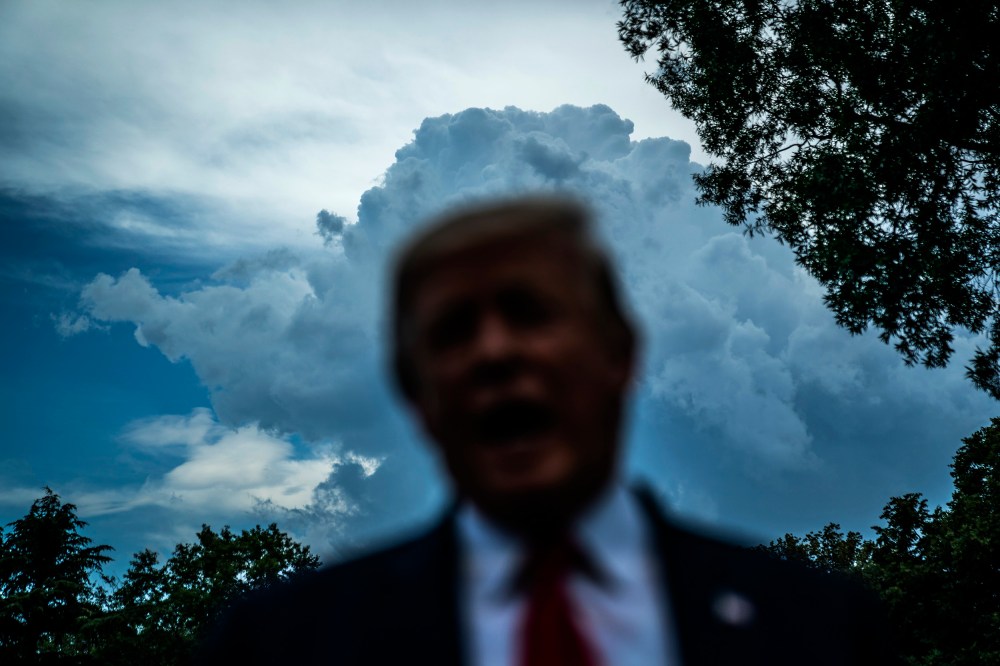The criminal charges brought last week against Tom Barrack, a major fundraiser for former President Donald Trump’s 2016 campaign and chairman of his 2017 inaugural committee, were simply the latest in a long string of indictments (and convictions) of high-level Trump associates. (A spokesperson for Barrack, who was released Friday on $250 million bond, said the former fundraiser “has made himself voluntarily available to investigators from the outset. He is not guilty and will be pleading not guilty.”)
The list of Trump associates investigated, indicted or convicted for various crimes goes on and on and on and on and on and on.
Paul Manafort, chairman of Trump’s 2016 campaign, was convicted on charges of banking and tax fraud in 2018. Manafort’s aide and deputy campaign manager, Rick Gates, likewise faced indictments for bank fraud and money laundering (among other crimes) before pleading guilty to lesser charges.
Steve Bannon, campaign CEO and special counselor to the president, was charged with criminal conspiracies to commit wire fraud and money laundering. (He pleaded not guilty, but the charges were later dismissed due in part to confusion over his presidential pardon.)
Michael Cohen, Trump’s longtime attorney and fixer, pleaded guilty in 2018 to tax fraud, bank fraud, campaign finance violations and other charges. Roger Stone, another Trump confidant and fixer, was convicted in 2019 on seven counts of witness tampering, obstruction of justice and lying to Congress. Michael Flynn, who served as Trump’s national security adviser for less than a month before resigning in disgrace, pleaded guilty — twice — to lying to FBI investigators.
The list of Trump associates investigated, indicted or convicted for various crimes goes on and on and on and on and on and on. (And, we should note, that list doesn’t include those whose transgressions have been ignored, such as the five members of Trump’s Cabinet whose cases the Department of Justice declined to prosecute.)

The latest criminal charges are surely not the last to be brought against Trump’s inner circle, given the wide array of investigations into his family, friends and business associates that are still underway. The final count of indictments and convictions won’t be known for some time, but it’s already clear that Trump’s team will go down as one of the most thoroughly criminal political machines in American history.
To be sure, other administrations have racked up considerable convictions in the past. The Nixon White House, most famously, unraveled not just with the resignations of the president and vice president, but with dozens of members sent to jail, including a former attorney general, White House counsel and several of the president’s top aides. The Reagan administration likewise ended with dozens indicted or convicted.
The bulk of the criminal charges in those administrations centered on abuses of power for political ends, most notably in the Watergate and Iran-Contra scandals. Trump’s inner circle has faced fallout from comparable investigations, such as special counsel Robert Mueller’s inquiry into their ties to Russia. But the bulk of the charges levied against them have revolved around more personal crimes of financial fraud and garden-variety graft.
To find the real counterpart to Trump’s gang of money-grubbing grifters, we need to look back a century to the crime-riddled administration of Warren G. Harding.
Much like Trump, who promised as a candidate to “drain the swamp” of criminality and corruption, Harding spent the 1920 campaign calling for a return to a “normalcy” marked by old-fashioned values that he promised to instill in Washington. “We need the stamp of common, every-day honesty everywhere,” he told a gathering of newspaper editors that August. “We need it in politics, in government, in our daily lives.”
Despite such soaring appeals to virtue, the government Harding created proved riven with vice.













